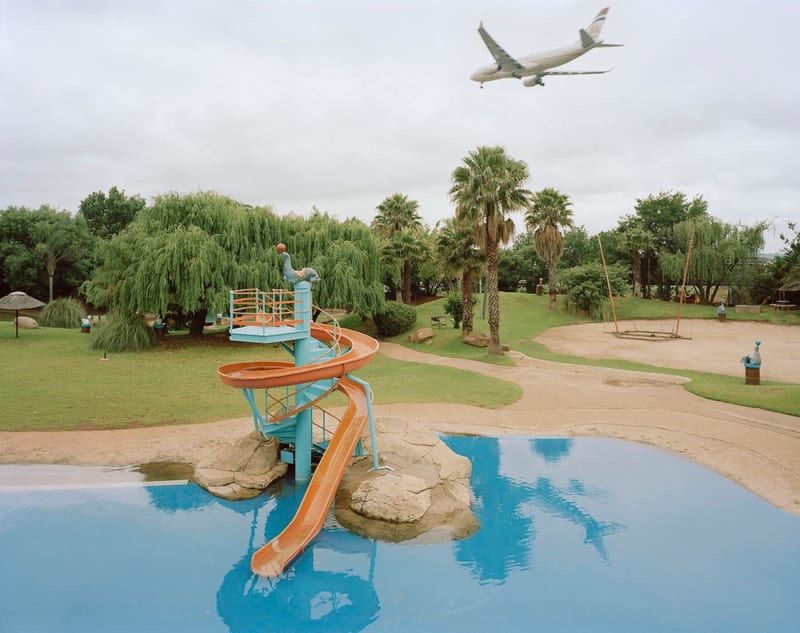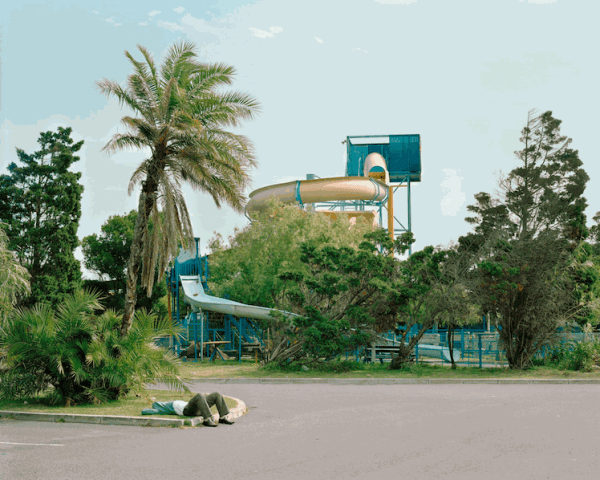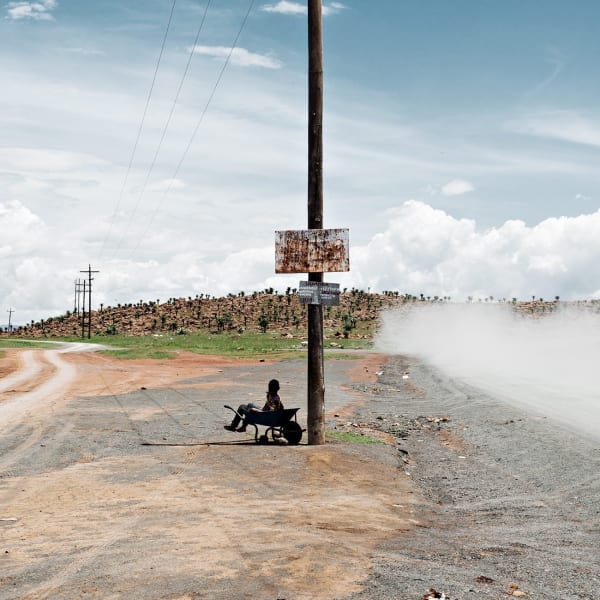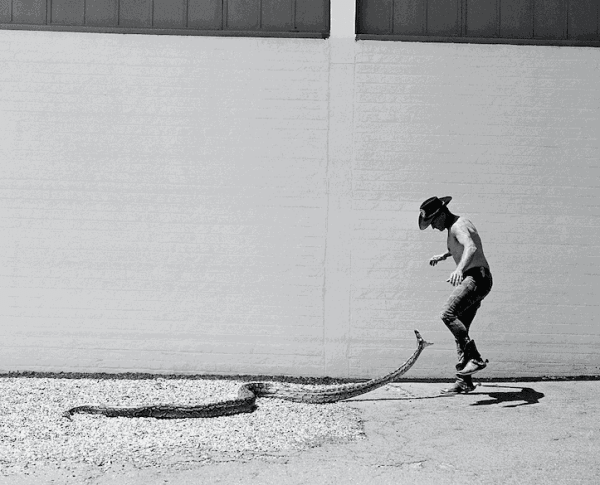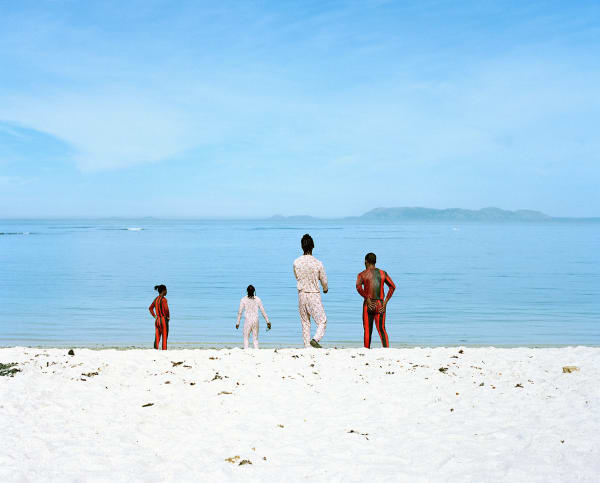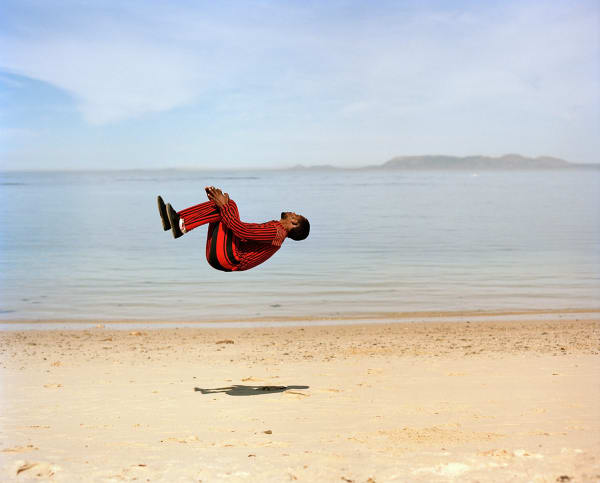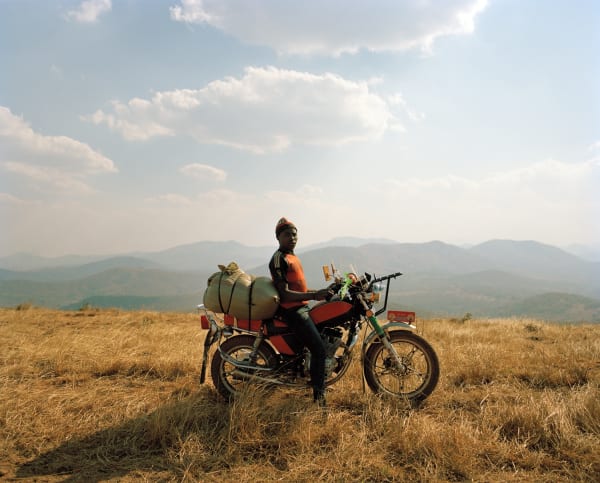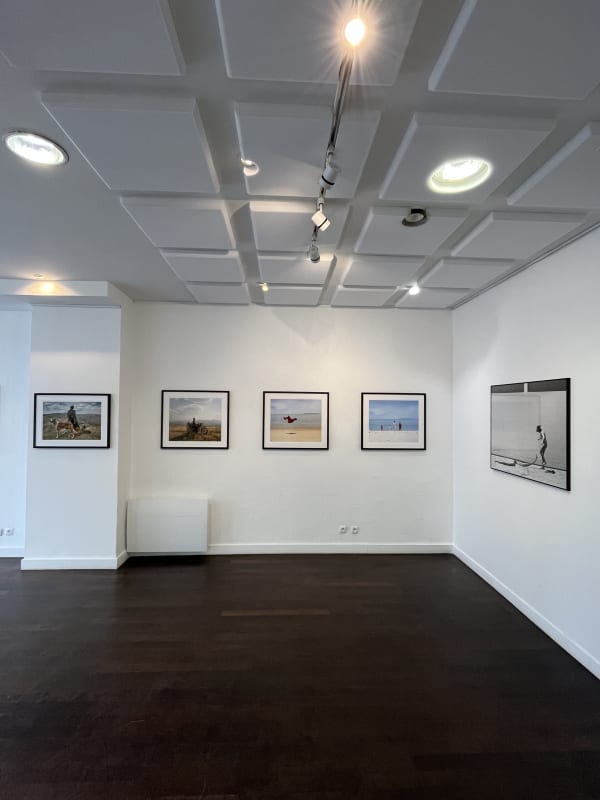Resilience: Paris, France
5 Rue de Médicis, 75006
Paris, France
This exhibition explores the place that resilience holds in South African culture and history. Whether inside or outside of their borders, South African artists have documented stories that showcase the resilience of populations, capturing their memories, struggles, and triumphs.
Resilience is rooted in South African people who have continuously worked towards a better future despite difficult situations that sought to tear the country apart. The Bridge Gallery’s second exhibition bring together fresh perspectives about the strength, perseverance, and adaptability of individuals and communities that represent the nation’s past, present and future. Each artist, inspired by singular stories that will be presented throughout the exhibition, reveals the essence of resilience in the language of art.
Lee-Ann Olwage’s “The Right to Play” series creates a playful world where girls are shown in an empowered and affirming way. By capturing the disparity of girls’ education in Kenya, Olwage creates empowering images that offer a glimpse into a world where dreams flourish, quietly challenging societal norms and barriers to education.
In “Separate Amenities”, Vincent Bezuidenhout explores landscapes shaped by apartheid’s legacy. Resilience unfolds in the reclaimed spaces where communities, once divided, find connection beyond imposed boundaries. Bezuidenhout’s images convey a quiet strength, a testament to the human spirit’s ability to overcome the scars of the past.
Francois Visser crystallizes the everyday poetry of resilience in eastern and southern Africa. Acrobats defy gravity and travel pursuing their dreams. Motorcyclists navigate rugged terrains to move around isolated villages. Roads being largely inaccessible, motorcycles are the primary connectors in these agricultural communities. Through Visser’s lens, photography acts as a visual celebration of the extraordinary dignity found in ordinary existence.
Jabulani Dhlamini focuses on his upbringing while also reflecting on various communities within contemporary South Africa. Dhlamini’s approach is meditative and subtly provokes a closer look at what lies on the edges through an exploration of personal and collective memory. Incorporating landscape imagery and intimate portraits, his work captures historical moments — such as the recollection of the Sharpeville Massacre, the effects of land dispossession and the funeral of antiapartheid activist Winnie Madikizela-Mandela — while also documenting the quieter moments in the lives of everyday South Africans.
-
 Vincent BezuidenhoutMilnerton Waterpark, 2012Photography - Inkjet print on Baryta Hahnemühle80 x 100 cmEdition of 10 + 2AP
Vincent BezuidenhoutMilnerton Waterpark, 2012Photography - Inkjet print on Baryta Hahnemühle80 x 100 cmEdition of 10 + 2AP -
 Vincent BezuidenhoutWild Waters, 2011Photography - Inkjet print on Baryta Hahnemühle80 x 100 cmEdition of 10 + 2AP
Vincent BezuidenhoutWild Waters, 2011Photography - Inkjet print on Baryta Hahnemühle80 x 100 cmEdition of 10 + 2AP -
 Jabulani DhlaminiBazobuya Sibalindile, Enkuthu, 2017Photography - Inkjet print on Hahnemühle Photo Rag100 x 100 cmEdition of 7
Jabulani DhlaminiBazobuya Sibalindile, Enkuthu, 2017Photography - Inkjet print on Hahnemühle Photo Rag100 x 100 cmEdition of 7 -
 Francois VisserSuper African Acrobats #1, 2016Inkjet print on Baryta Hahnemühle50 x 60 cmEdition of 5 + 1AP
Francois VisserSuper African Acrobats #1, 2016Inkjet print on Baryta Hahnemühle50 x 60 cmEdition of 5 + 1AP -
 Francois VisserThe Namib Cowboy #1, 2020Photography - Inkjet print on Baryta Hahnemühle50 x 40 cm | 100 x 80 cmEdition of 5 + 1 AP | Edition of 5 + 1 AP
Francois VisserThe Namib Cowboy #1, 2020Photography - Inkjet print on Baryta Hahnemühle50 x 40 cm | 100 x 80 cmEdition of 5 + 1 AP | Edition of 5 + 1 AP -
 Francois VisserBeautiful Place, 2016Inkjet print on Baryta Hahnemühle50 x 60 cmEdition of 5 + 1 AP
Francois VisserBeautiful Place, 2016Inkjet print on Baryta Hahnemühle50 x 60 cmEdition of 5 + 1 AP -
 Francois VisserIddy, 2016Inkjet print on Baryta Hahnemühle50 x 60 cmEdition of 5 + 1 AP
Francois VisserIddy, 2016Inkjet print on Baryta Hahnemühle50 x 60 cmEdition of 5 + 1 AP -
 Francois VisserPikipiki Riders #4, 2022Inkjet print on Baryta Hahnemühle50 x 60 cmEdition of 5 + 1 AP
Francois VisserPikipiki Riders #4, 2022Inkjet print on Baryta Hahnemühle50 x 60 cmEdition of 5 + 1 AP -
 Francois VisserPikipiki Riders #5, 2022Inkjet print on Baryta Hahnemühle50 x 60 cmEdition of 5 + 1 AP
Francois VisserPikipiki Riders #5, 2022Inkjet print on Baryta Hahnemühle50 x 60 cmEdition of 5 + 1 AP -
 Jabulani DhlaminiDithoto Ke Lefa La Ba Bohale (Diptych), 2016Inkjet print on Hahnemühle Photo Rag60 x 60Edition of 7
Jabulani DhlaminiDithoto Ke Lefa La Ba Bohale (Diptych), 2016Inkjet print on Hahnemühle Photo Rag60 x 60Edition of 7
